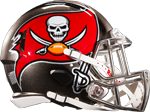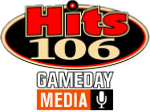1986 Tampa Bay Buccaneers Season 11 Brief
The 1986 Tampa Bay Buccaneers season began with the team trying to improve on an 2–14 season. This was one of the worst seasons in franchise history. There is some sentiment that the 1986 team was even worse than the winless team of 1976, and the 473 points conceded was not beaten by any NFL team until the 2001 Indianapolis Colts gave up 486. The Buccaneers selected Bo Jackson with the top pick in the draft, but were unable to convince him to join the team. Three weeks after the draft, Jackson signed a three-year baseball contract with the Kansas City Royals. Despite holding four of the first forty selections in the draft, and the presence of a great influx of fresh talent from defunct USFL teams, the Buccaneers were unable to find any impact players in either the draft or free agency. They entered the season with a roster nearly identical to the previous season's 2–14 team.
Coach Leeman Bennett treated the season as a building season, but was disappointed with the team's mental errors and lack of progress. Later in the season, he would begin to privately admit that the Buccaneers' talent was much worse than he had realized. Steve DeBerg won the starting quarterback job after outplaying Steve Young in the preseason, but was benched in favor of Young after struggling in the first two games. Kevin House and Jimmie Giles were released after an October loss to the New Orleans Saints, along with ex-Dallas Cowboys fullback Ron Springs. Bennett showed up at a press conference held after the season by owner Hugh Culverhouse, unaware that the purpose of the press conference was to announce Bennett's firing. Giles, then with the Detroit Lions, criticized the move, saying that no coach could compensate for the Buccaneers' lack of talent. He also claimed that administrator Phil Krueger destroyed team chemistry by demeaning players during contract negotiations, pointing to guard Sean Farrell's disgruntlement as an example.
Offseason
Defensive end Lee Roy Selmon retired a week before the draft. He missed the entire 1985 season due to a herniated disk, and chose to retire rather than undergo surgery. Although his retirement was expected, the Buccaneers did not seek a replacement in the draft. With Mark Cotney and Steve Wilson having retired earlier in the year, Selmon was the last of the original Buccaneers on the roster.
The Buccaneers received additional picks in the 1st and 2nd rounds from the Miami Dolphins in exchange for linebacker Hugh Green. Their extra 6th-round pick came from the New England Patriots in exchange for a 5th-round pick in the 1987 draft. The second pick in the 12th round came from the San Francisco 49ers in return for the rights to center Jim Leonard. The Buccaneers' 3rd-round pick was traded to the New Orleans Saints for defensive back David Greenwood. Their 6th-round pick was traded to the Denver Broncos in exchange for defensive end Brison Manor. Their 7th-round pick went to the Buffalo Bills in exchange for wide receiver Perry Tuttle. Their 8th-round pick went to the Rams for defensive back Ivory Sully.
The Bo Jackson Draft Fiasco
Auburn University running back Bo Jackson was selected with the Buccaneers' first overall pick in the draft, but refused to sign with them. Jackson was angry with the Buccaneers after accepting a private jet ride to attend a team workout caused him to lose his eligibility to play baseball at Auburn. Although NCAA rules allow a professional athlete to compete collegiately in a different sport, stricter Southeastern Conference rules disqualify a professional athlete from competing in any college sports. Jackson accused the Buccaneers of sabotaging his college baseball career, although Phil Krueger insisted that the SEC had advised them that the flight was allowable, and that it was Jackson himself who had insisted on using a private flight. Jackson had been rated as the best running back prospect to come out of college since O.J. Simpson 17 years earlier. Jackson was said to have ridiculed Tampa Bay's offensive line, and shortly before the baseball draft to have told two teams that he had no intention of playing football. Most teams did not believe him, but the Kansas City Royals, although they were unsure enough that they waited until the fourth round of the Major League Baseball Draft to select him. Jackson vowed never to play football again and accepted an offer from the Royals worth much less than what the Buccaneers offered. The Buccaneers turned down several impressive trade offers for Jackson, including the San Francisco 49ers' offer of Ronnie Lott, Wendell Tyler, and first- and second-round draft picks. Jackson's statements about not playing football were contradictory, as he alternated between stating he didn't want to play at all and between saying he didn't want to play for a terrible team and organization like Tampa Bay. In his book, Jackson recalls a meeting with Al Davis where he said he liked Davis and told the Raider boss he would love to play for them, and that the Raiders made offers for the #1 pick to Tampa Bay that were spurned.
There was speculation that owner Hugh Culverhouse was torn between his promise to make Jackson the highest-paid rookie ever, and his status as a member of the NFL Finance Committee, which obligated him to set a reasonable fiscal precedent for the rest of the league. This resulted in an underwhelming contract offer and produced the perception that the Buccaneers were not serious about signing Jackson. Although the Buccaneers offered Jackson $7 million over the five years, half of it was in the form of incentives, annuities, and real estate. The actual salary averaged to over $700,000 per year, still more than twice his yearly salary from the Royals, who gave him a three-year, $1 million contract. Negotiator Phil Krueger said that officials from other NFL teams agreed that the Buccaneers had offered Jackson fair money; however, Jackson also recounted in his book that Culverhouse got angry when he turned out an initial offer and said the Bucs would cut their next offer by 50% if Jackson didn't accept the first contract by the following day. Jackson's Royals contract gave him the option of buying out his contract if he wanted to return to football. Jackson was eligible to be drafted again the next year if not signed by April 28, 1987, which turned out to be the case. Culverhouse announced the embarrassment at a news conference in which he quoted the "keep smiling, keep shining" lyrics of Dionne Warwick's then-current hit song "That's What Friends are For". Jackson became the fourth consecutive Heisman Trophy winner (after USFL players Herschel Walker, Mike Rozier, and Doug Flutie) to spurn the NFL, although he was the first since Pete Dawkins in 1958 to leave football entirely. It was the first time since 1979, when Tom Cousineau signed with the Canadian Football League instead of the Buffalo Bills, that the first overall pick chose not to play in the NFL.
Other Draft Selections
Rod Jones was known as a hard hitter and a world-class track star, but was a controversial selection because, coming from the run-heavy Southwest Conference, his pass-coverage skills were unknown. At 5'11", 165 lbs., he was considered undersized for the NFL. Jones was the first defensive back selected, but was rated no better than fifth-best by most scouting services. The Buccaneers were criticized for taking linebacker Jackie Walker with their third pick, when Kevin Murphy of the national champion Oklahoma Sooners was still available. The Buccaneers did eventually draft Murphy, who they were surprised to find still available with their 40th overall selection. Murphy was believed to have fallen due to rumors of a knee injury. The Buccaneers had rated both Walker and Murphy among the top 15 players in the draft. Craig Swoope was rated as the best safety in the draft, but fell to the fourth round because of a previous charge (and acquittal) of conspiracy to distribute cocaine. Swoope was eventually the only Buccaneer to achieve any kind of postseason honors in 1986, being selected to the Football Digest All-Rookie team. The team went for big offensive linemen in the later rounds. One of them was J.D. Maarleveld, the first cancer patient drafted by the NFL. Maarleveld was considered to have been a second-round talent, but fell all the way to the fifth round. Belief that Maarleveld was worth much more money than the average fifth-rounder caused his agent, Greg Marotta, to advise him to reject the Buccaneers' offer and sign with the USFL Baltimore Stars. Maarleveld was eventually able to reach agreement with the Buccaneers.
Preseason
Personnel Moves
Bennett made efforts in the offseason to address the passing game, and to improve team speed. He held an extra "passing camp" before training camp for all offensive and defensive players involved in the passing game. Establishing the offense was complicated by the situation of not having enough reliable running backs to run a two-back offense. Finding enough speedy receivers to run a three-receiver set was also difficult, as was finding faster defensive backs who could play the man-to-man coverage that Bennett wanted to move to. Cutting safety David Greenwood and trading cornerback John Holt improved the speed of the secondary by opening up starting spots for rookies Jones and Swoope. Former Florida Gators cornerback Vito McKeever, a product of local Dunnellon High School who had played for the USFL Michigan Panthers under Buccaneer defensive coordinator Jim Stanley, was signed toward the end of preseason. The addition of McKeever, who took over Jeremiah Castille's starting spot, meant that three of the four secondary positions turned over from the previous year. The quest for speed in the secondary meant cutting safety and punt returner Mike Prior, who went on to become a mainstay on the Green Bay Packer playoff teams of the 1990s. In an attempt to upgrade the offensive line, five-time Pro Bowl tackle Marvin Powell was brought in. While there was speculation that the New York Jets let him go because he was President of the National Football League Players Association, the Jets were concerned over quarterback Ken O'Brien having been sacked an NFL-record 62 times the previous season, and selected two tackles in the draft. There was sentiment among some teams that, despite his Pro Bowl appearances, Powell was an overrated player who had never lived up to his reputation. Powell performed well for Tampa Bay, but was placed on injured reserve midseason after undergoing arthroscopic knee surgery. Undrafted free-agent running back Nathan Wonsley emerged in the preseason as a legitimate complement to James Wilder. Tyrone Keys, a defensive end from a team loaded with pass-rushers, and David Williams, a receiver who had led the nation in catches during his junior year, were claimed off waivers from the defending world champion Chicago Bears.
Regular Season
Steve DeBerg won the starting quarterback job over Steve Young in the preseason, but lost it after throwing seven interceptions in the season opener against the San Francisco 49ers, and another two the next week against the Minnesota Vikings. Nose tackle Dave Logan summed up the team's condition after the 49ers game by saying, "the teams we play do not respect us". Players coming from winning teams to the Buccaneers, such as Marvin Powell and Tyrone Keys, found themselves shocked by the constant losing and discouraged by the team's easy acceptance of losses. Keys in particular thought that the Buccaneers were too used to losing, and not bothered by it. Young later criticized the team's will to win, saying that "if they could hide for four quarters and just go home, they would be happy". Powell, one of the highest-paid offensive linemen in the league, was placed on injured reserve with a knee injury after only a few games. An embarrassing loss to the New Orleans Saints was followed by the release of Jimmie Giles and Kevin House, the top two receivers in Buccaneer history at the time, and former starting fullback Ron Springs. This upset several club veterans, and weakened an offense that already had to compensate for a defense that had allowed over 1,000 rushing yards in the previous four games. League perception was that the Buccaneers were replacing older veterans with younger players who were incapable of taking their places. Said an executive from another team of Giles' replacement, "Calvin Magee runs a 5.2 40...We wouldn't even bring him into camp". Rumors, denied by Culverhouse, began to circulate that secret meetings were being held to arrange replacing Bennett with Steve Spurrier. Nathan Wonsley, the rookie free-agent running back whose play was one of the few bright spots in the season, was lost to the team after suffering dislocated neck vertebrae during a week 10 loss to the Chicago Bears. After the abnormally large number of injuries suffered during the Bears game, the Buccaneers ended their pattern of suffering fourth-quarter collapses in close games, instead losing their last seven games by an average of over 21 points. With Jerry Bell, a tight end who played a "U-back" position that was crucial to Tampa Bay's running game, suffering a broken ankle in the same game, the Buccaneers were forced to re-sign Ron Springs just to have enough runners in their backfield. Culverhouse, saying that he had made the decision only minutes prior, fired Bennett at a press conference on Dec. 29. Bennett, who had spoken to Culverhouse earlier the same morning, was unaware that he was to be let go. Culverhouse met with Ray Perkins and offered him the Tampa Bay coaching job only hours after firing Bennett. The firing was criticized by some, who felt that no steps were being taken to address the front-office problems that were the real root of the Buccaneers' woes. This criticism was echoed by safety David Greenwood, by then with the Packers, who pointed out the team's cheapness by recounting a 1985 incident in which he wanted to keep a football as a game ball after catching it for an interception. Executive Phil Krueger demanded that Greenwood pay $35 for the football.
| PRESEASON | ||||
| Date | Opponent | Week/Record | Outcome | |
| Saturday Aug. 9 |
St. Louis Cardinals Tampa Stadium, Tampa Bay, FL |
PS - wk 1
0-1 |
Lost 10-26 | |
| Saturday Aug. 16 |
Atlanta Falcons Tampa Stadium, Tampa Bay, FL |
PS - wk 2
0-2 |
Won 17-20 | |
| Saturday Aug. 23 |
Washington Redskins Tampa Stadium, Tampa Bay, FL |
PS - wk 3
0-3 |
Won 13-21 | |
| Friday Aug. 29 |
@ Miami Dolphins Orange Bowl, Miami, FL |
PS - wk 4
0-4 |
Lost 3-21 | |
1986 Season ResultsRecord: 2-14, DIV: 1-7 (5th in NFC Central) |
||||
| Date | Opponent | Week/Record | Outcome | |
| Sunday Sep. 7 |
San Francisco 49ers Tampa Stadium, Tampa Bay, FL |
RS - wk 1
0-1 |
Lost 7-31 | |
| Sunday Sep. 14 |
Minnesota Vikings
Tampa Stadium, Tampa Bay, FL |
RS - wk 2
0-2 |
Lost 10-23 | |
| Sunday Sep. 21 |
@ Detroit Lions
Pontiac Silverdome, Pontiac, MI |
RS - wk 3
1-2 |
Won 24-20 | |
| Sunday Sep. 28 |
Atlanta Falcons
Tampa Stadium, Tampa Bay, FL |
RS - wk 4
1-3 |
Lost 20-23 (OT) |
|
| Sunday Oct. 5 |
@ Los Angeles Rams
Anaheim Coliseum, Anaheim, CA |
RS - wk 5
1-4 |
Lost 20-26 | |
| Sunday Oct. 12 |
St. Louis Cardinals
Tampa Stadium, Tampa Bay, FL |
RS - wk 6
1-5 |
Lost 19-30 | |
| Sunday Oct. 19 |
@ New Orleans Saints
Louisiana Superdome, New Orleans, LA |
RS - wk 7
1-6 |
Lost 7-38 | |
| Sunday Oct. 26 |
@ Kansas City Chiefs Arrowhead Stadium, Kansas City, MO |
RS - wk 8
1-7 |
Lost 20-27 | |
| Sunday Nov. 2 |
Buffalo Bills
Tampa Stadium, Tampa Bay, FL |
RS - wk 9
2-7 |
Won 28-34 | |
| Sunday Nov. 9 |
Chicago Bears
Tampa Stadium, Tampa Bay, FL |
RS - wk 10
2-8 |
Lost 3-23 | |
| Sunday Nov. 16 |
@ Green Bay Packers
Lambeau Field, Green Bay, WI |
RS - wk 11
2-9 |
Lost 7-31 | |
| Sunday Nov. 23 |
Detroit Lions
Tampa Stadium, Tampa Bay, FL |
RS - wk 12
2-10 |
Lost 17-38 | |
| Sunday Nov. 30 |
@ Minnesota Vikings
Hubert H. Humphrey Metrodome, Minneapolis, MN |
RS - wk 13
2-11 |
Lost 13-45 | |
| Sunday Dec. 7 |
@ Chicago Bears
Soldier Field, Chicago, IL |
RS - wk 14
2-12 |
Lost 14-48 |
|
| Sunday Dec. 14 |
Green Bay Packers Tampa Stadium, Tampa Bay, FL |
RS - wk 15
2-13 |
Lost 7-21 |
|
| Sunday Dec. 21 |
@ St. Louis Cardinals Bush Memorial Stadium, St. Louis, MO |
RS - wk 16
2-14 |
Lost 17-21 |
|
| PLAYOFFS | ||||
| Date | Opponent | NFC/Superbowl | Outcome | |
| Season Ended |
@ Tampa Bay Buccaneers Tampa Stadium, Tampa Bay, FL |
None
None |
00-00 | |




